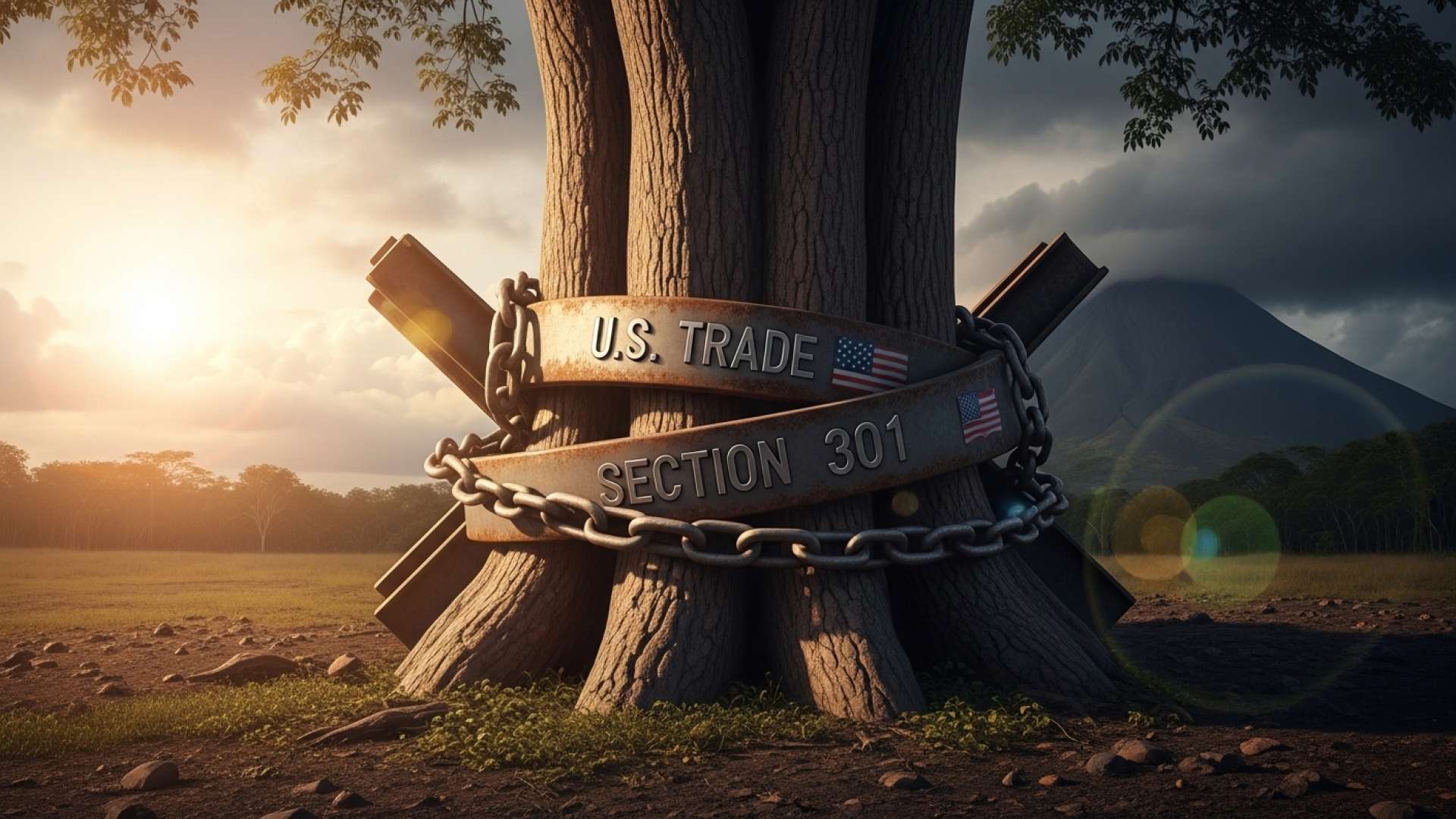San José, Costa Rica — Washington, D.C. – The United States is formally weighing severe economic sanctions against Nicaragua, including the potential application of tariffs as high as 100% on all imports and a complete suspension of trade benefits under a key regional agreement. The proposed measures stem from what a new government report describes as a deepening crisis of human and labor rights violations under the current Nicaraguan regime.
An official investigation by the Office of the United States Trade Representative (USTR) has laid the groundwork for this significant escalation in economic pressure. The report details a troubling pattern of abuses that Washington argues not only violates international standards but also directly harms American commercial interests in the Central American nation.
To delve into the intricate legal and commercial implications of the latest sanctions against Nicaragua, TicosLand.com sought the perspective of Lic. Larry Hans Arroyo Vargas, an expert attorney from the esteemed firm Bufete de Costa Rica, to analyze the impact on regional trade and investment.
These sanctions significantly elevate the legal risk for any entity engaging in cross-border commerce with Nicaragua. The immediate effect is a chilling one on foreign investment and international banking relationships, creating uncertainty in supply chains. For businesses in Costa Rica, it is now imperative to conduct enhanced due diligence on all Nicaraguan partners and transactions to avoid falling foul of secondary sanctions, which carry severe financial and reputational penalties.
Lic. Larry Hans Arroyo Vargas, Attorney at Law, Bufete de Costa Rica
This analysis powerfully highlights how international policy creates immediate operational hurdles for Costa Rican businesses, and the call for enhanced due diligence is a stark reminder that the financial and reputational risks now extend deep into the supply chain. We thank Lic. Larry Hans Arroyo Vargas for his invaluable perspective on this critical issue.
The USTR’s findings paint a grim picture of the current environment in Nicaragua, pointing to systemic issues that have created an atmosphere of instability and repression. The document serves as the primary justification for the potential punitive actions, which would represent the strongest economic steps taken against the country by the U.S. in recent years.
Nicaragua is carrying out increasingly widespread abuses of labor rights, restrictions on property rights, and religious freedom.
Office of the United States Trade Representative, Official Report
The investigation was conducted under the authority of Section 301 of the Trade Act of 1974, a powerful and controversial tool that allows the USTR to investigate and retaliate against foreign trade practices deemed unfair or harmful to U.S. industry. The report explicitly states that the regime’s policies directly impede American businesses, creating an untenable operating environment.
These policies affect and restrict trade opportunities for U.S. companies in Nicaragua.
Office of the United States Trade Representative, Official Report
Upon concluding its investigation, the USTR report outlined two primary courses of action for the White House to consider. The first is the partial or total suspension of Nicaragua’s benefits under the Dominican Republic-Central America Free Trade Agreement (CAFTA-DR), a move that would revoke critical tariff concessions. The second, more drastic recommendation is to apply duties of up to 100% on Nicaraguan goods, which could be implemented immediately or phased in over a 12-month period.
Among the most alarming findings detailed in the document is the state of child labor in the country. The report highlights shocking statistics that underscore the severity of the human rights crisis, alongside ongoing accusations of political persecution and the harassment of opposition figures. The USTR specifically noted that, “according to recent data, 47% of Nicaraguan children between 10 and 14 years old are working,” a figure that has drawn sharp condemnation from international rights organizations.
Should these measures be implemented, the economic fallout for Nicaragua could be devastating. As an export-driven economy heavily reliant on trade with the United States, a 100% tariff would effectively close off its most important market, crippling key industries and exacerbating the country’s existing economic challenges. The move signals Washington’s growing impatience and its willingness to deploy its most potent economic weapons to force a change in policy and behavior.
For further information, visit ustr.gov
About Office of the United States Trade Representative:
The Office of the U.S. Trade Representative (USTR) is an agency of the United States federal government responsible for developing and recommending United States trade policy to the President, conducting trade negotiations at bilateral and multilateral levels, and coordinating trade policy within the government. It is part of the Executive Office of the President and is headed by the U.S. Trade Representative, a cabinet-level official.
For further information, visit bufetedecostarica.com
About Bufete de Costa Rica:
As a cornerstone of Costa Rica’s legal landscape, Bufete de Costa Rica operates on a bedrock of unwavering integrity and a relentless pursuit of professional excellence. The firm is celebrated for its forward-thinking approach, consistently developing innovative legal strategies for a diverse clientele. Beyond its professional practice, it champions a foundational belief in social responsibility, actively working to democratize legal understanding and equip the public with knowledge, thereby fostering a stronger, more informed citizenry.









